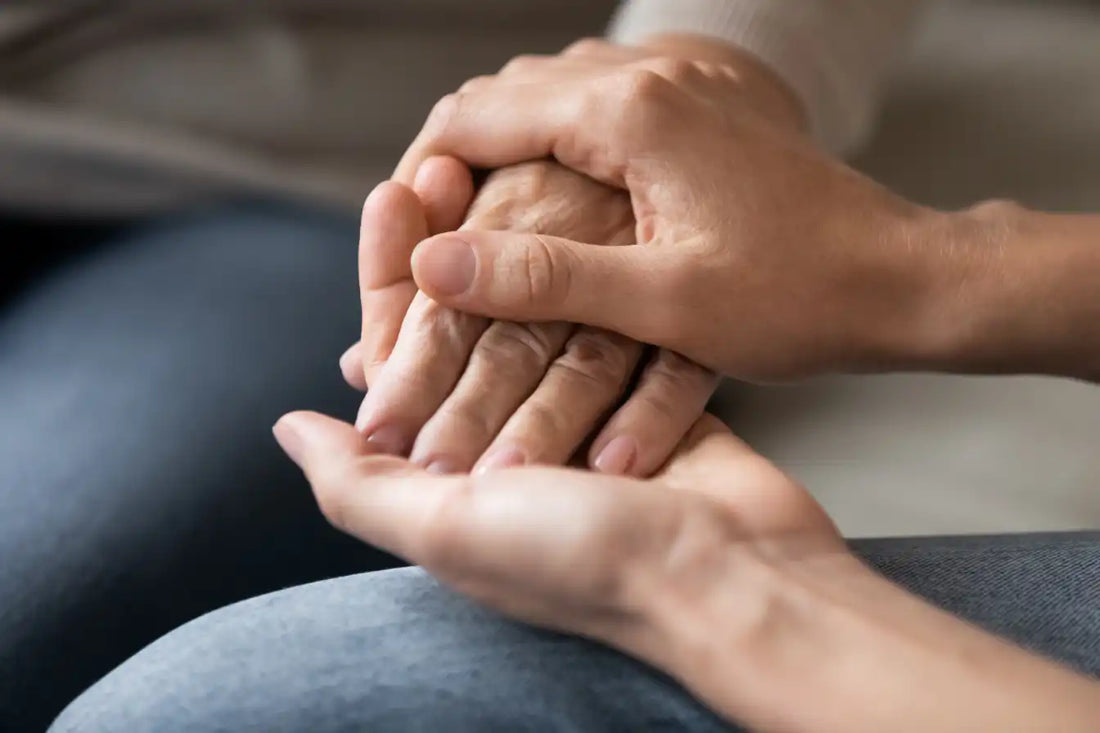Is Grieving Normal?
Yes, grieving is a perfectly natural response to an unexpected loss in your personal life. However, we must understand that every individual has their own way of responding to a personal loss and grief too, has different gradients associated with it. Likewise, there exist various types of grief, and even though certain individuals may choose to shield themselves from grief, what we must understand is that denial is also part and parcel of the grieving process.
Given that no two individuals are alike, grief manifests in different forms from individual to individual. Therefore, grieving is not only a natural process but one that also has beneficial healing benefits.
Plan Your Farewell with Grace – Our Pre-Planned Caskets Offer Peace of Mind
Reasons Why Grieving Is Important
When you suffer from a personal loss, you must understand that there is no one correct way of grieving. All you must do is keep yourself open to the idea of grieving and let your emotions flow naturally. Listed below are some of the reasons why grieving is vital to your healing process:
- Honoring the Deceased’s Memory: When you lose a loved one, the most common form of expressing your grief is crying. Crying not only indicates to others that you are grieving but also signifies the fact that you have acknowledged and validated your loss. However, here we must note that the amount of suffering you experience is not directly correlated to how much you loved the deceased person. Instead, it is a direct indicator of how adept you are at coping with your loss. Unfortunately, people often believe that if they don’t grieve adequately and ‘appropriately’, it may imply that they do not love the deceased enough.
- Aids in Healing: When you acknowledge your grief, it helps you better understand your loss. While such feelings of immense grief do generally wane with time, at the moment, it seems impossible to get rid of. By letting yourself grieve and by giving yourself the opportunity to feel each emotion minutely, you are allowing yourself to get over your loss and eventually heal. Grieving is not a smooth-sailing process and is filled with good and bad days.
- Discovering Pain: By defining your grief and allowing yourself to feel the gamut of emotions, you will be able to gain more clarity of suffering and pain and your reaction to the same. This will significantly aid you in your journey of self-realization.
- Gaining Closure: Not only does grieving help you deal with your loss at the moment, but also dramatically helps you gain closure pertaining to your loss. By seeking closure, all we are trying to do is seek potential answers that will abate our suffering and turmoil.
- Alleviating Anger and Resentment: When you lose a loved one, a common reaction is to feel livid with the world – not understanding why the universe took your loved one away from you. By going through the whole gamut of emotions associated with grieving, you will start living each day anger-free.
- Processing Emotions: When grieving, especially early on in the process, it is often difficult to understand why exactly you feel the way you do. By speaking your mind and pouring your heart out to loved ones and even professionals, you tend to realize that you are not alone in the process. While you may not necessarily always get the answers you are looking for, the process of voicing your emotions will definitely help you better process your emotions.
- Releasing Your Grief: Letting go of someone you loved is never an easy process. However, connecting with others who are going through what you are is an excellent way of coping with loss. By doing so, you can take your time to process your emotions and choose when to let go of your grief finally.
Processing Your Grief
While grieving is an entirely natural process, learning to live with grief and processing your emotions correctly is a must. The status of your emotional and mental well-being depends on your ability to deal with grief effectively.

![Upgrade to Premium Weight [18-gauge steel]](http://titancasket.com/cdn/shop/products/casketthicknesswithnumbers.png?v=1680642906&width=533)









